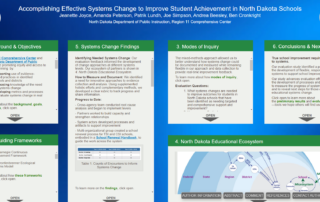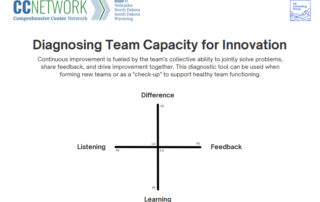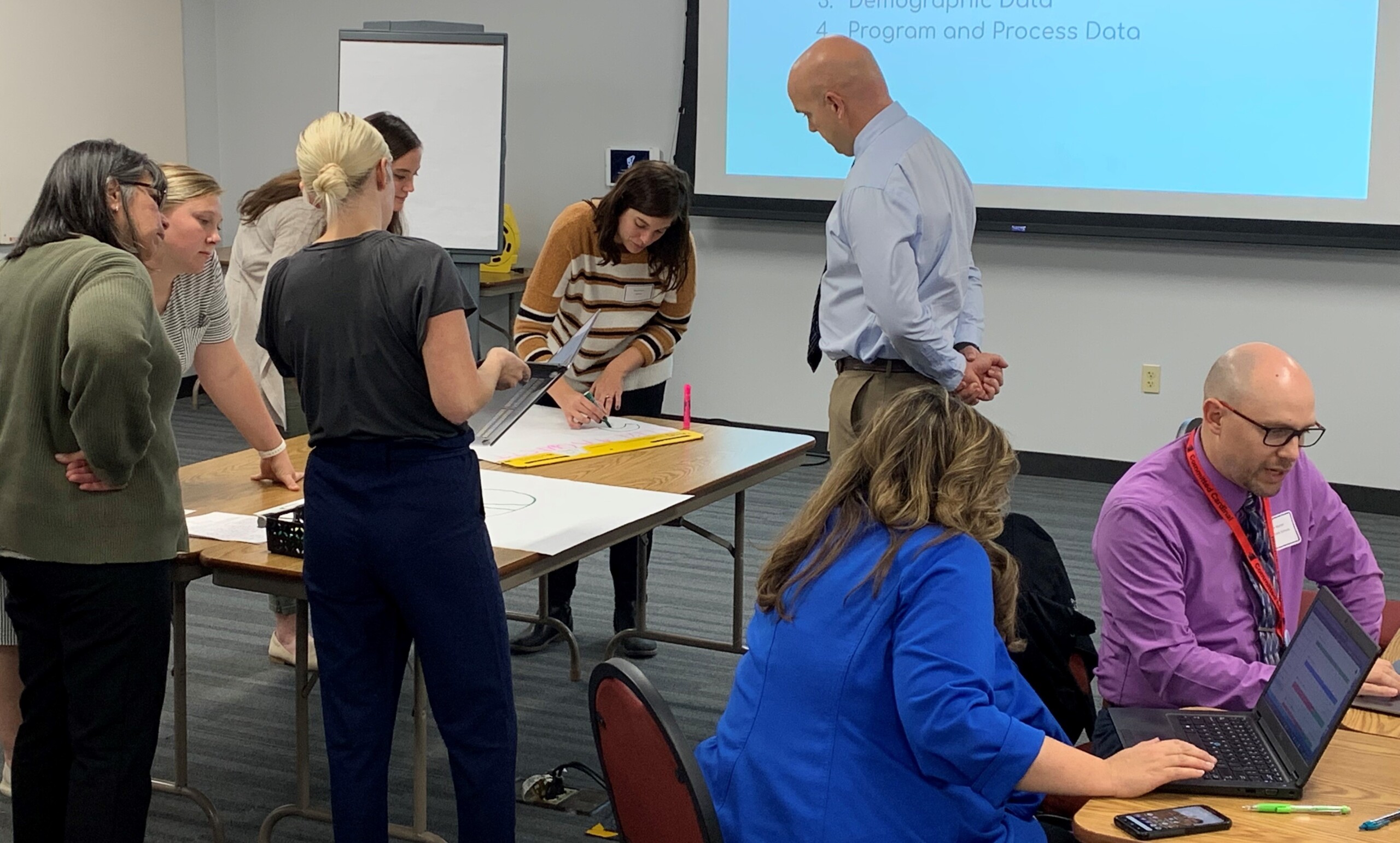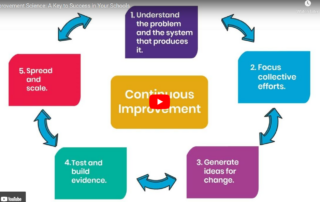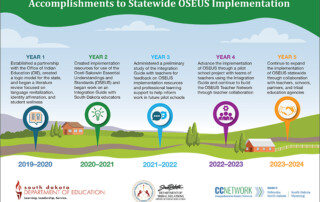Interactive Resource on Systems Change Highlights Work in North Dakota
The Region 11 Comprehensive Center team, in collaboration with the North Dakota Department of Public Instruction (NDDPI), is sharing how North Dakota schools are working to accomplish effective systems change to improve student achievement through an interactive poster that was presented at the American Educational Research Association (AERA) annual meeting. The poster, which features text, videos, and graphics,
Foster Psychological Safety & Double-Loop Learning to Drive Meaningful Change
By Kirsten Naomi Rogers Chapman and Ben Cronkright
After three months as the school improvement team lead for South Lake High School, Louisa has hit a brick wall. Her team is meeting consistently, collecting and analyzing data on student progress, implementing changes to classroom practice, and generally getting along, but Louisa feels like they’re going in circles—and the data
Voices From the Region: An Interview with Fred Osborn from SD’s Office of Indian Education
Voices from the Region spotlights stakeholders in Region 11 and their work to improve educational opportunities and outcomes. R11CC is privileged to collaborate with and share the insights of Fred Osborn, director of the Office of Indian Education at the South Dakota Department of Tribal Relations. This interview was featured in the R11CC Winter-Spring 2023 newsletter.
Three Key Ingredients for Building Effective School Support Partnerships
One of our primary roles at the Region 11 Comprehensive Center (managed by McREL) is to support statewide education improvement efforts involving partnerships among state departments of education, regional service agencies, local districts, and even individual schools.
Video: North Dakota Schools Embrace a Plan-Do-Study-Act Cycle of Improvement
This video from the Region 11 Comprehensive Center defines improvement science and explains how it is being used to support school success in North Dakota.
Using Bright Spots in South Dakota Indian Country to Increase Native American Student Achievement
Educators who serve Native American students are often at the intersection of different requirements, regulations, funding opportunities, and constraints. These factors can inhibit the capacity of educators to pursue evidence-based educational practices and approaches.

